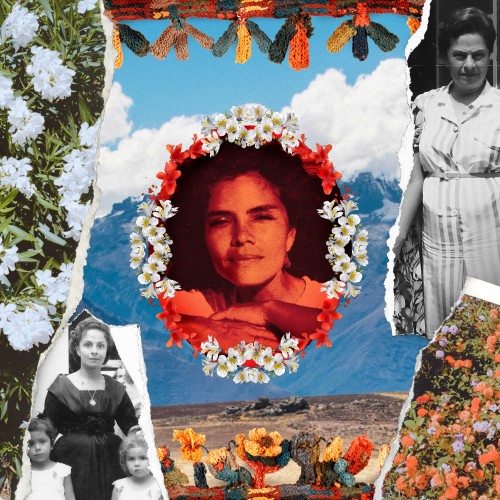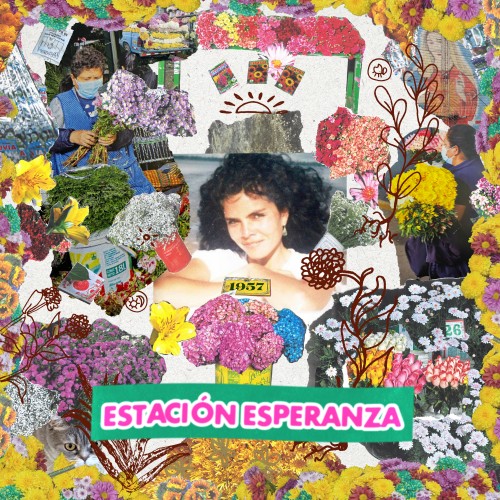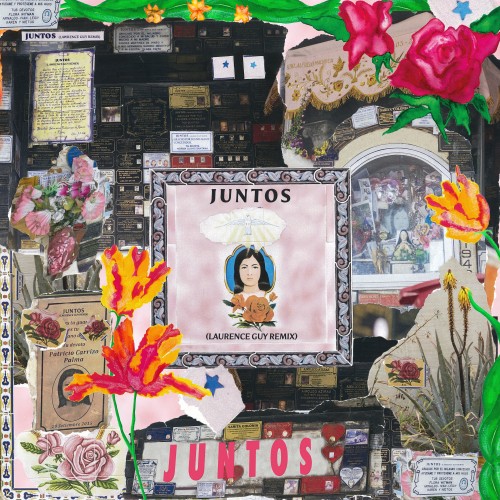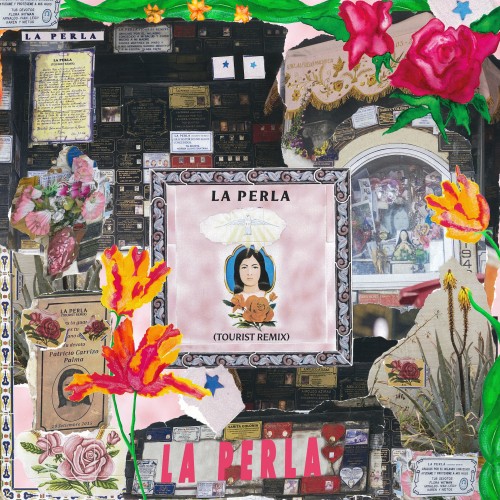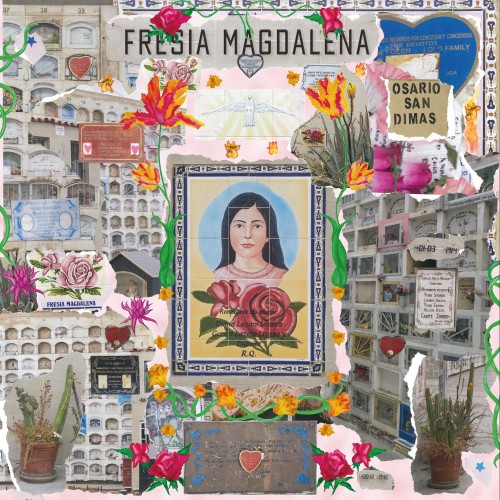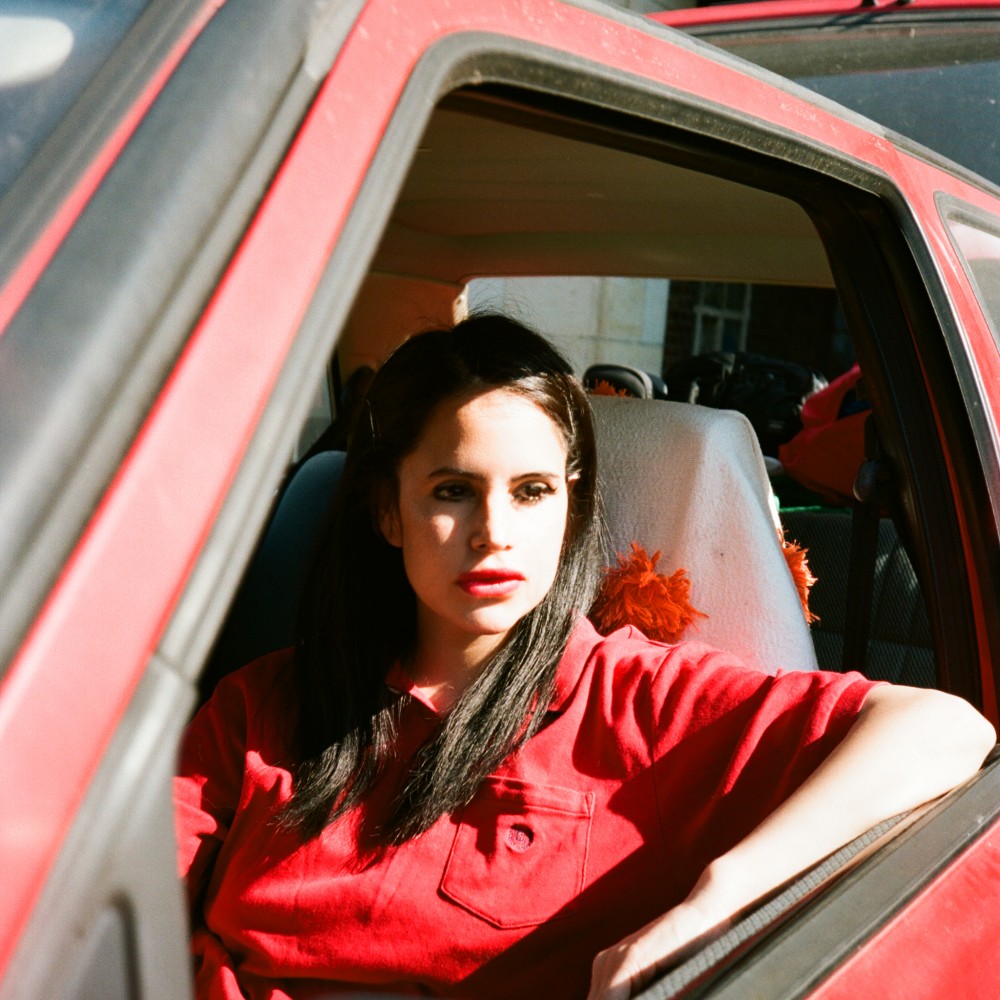
Sofia Kourtesis
On Ninja Tune
BIOGRAPHY
Sofia Kourtesis has announced that she will release her new EP Volver on 1 August via Ninja Tune. Along with the announcement she has shared lead single ‘Unidos’ which is made in collaboration with Daphni (aka Dan Snaith aka Caribou), the first ever Daphni collaboration track.Speaking of the single Sofia says:“Unidos is about the power and beauty of how much stronger we are together. I always admire the light and the beautiful shine of Dan, he is a hero...
Sofia Kourtesis has announced that she will release her new EP Volver on 1 August via Ninja Tune. Along with the announcement she has shared lead single ‘Unidos’ which is made in collaboration with Daphni (aka Dan Snaith aka Caribou), the first ever Daphni collaboration track.
Speaking of the single Sofia says:
“Unidos is about the power and beauty of how much stronger we are together. I always admire the light and the beautiful shine of Dan, he is a hero and he is so generous without making a big fuss about it”
While Daphni says:
“Sofia sent me a demo of this track that she’d been working on and it was immediately evident that it was a massive track. To be clear, all the good ideas in this track are Sofia’s I just added some drums and pumped up the arrangement”
The Volver EP is Sofia’s first new music since Madres, her debut album released in October 2023. Having already broken through with a string of singles and EPs Madres took that success and ran with it, marking a huge moment for Sofia that has continued to build ever since. The album was described in their interview features as “one of the year’s best dance albums” by The Guardian and "the kind of music that thaws any and all frigidity and reminds you of your aliveness" by Pitchfork and ranked highly in ‘End of Year’ lists from NME, Pitchfork, The Guardian, Resident Advisor and more. It also led to sold out shows at London’s Islington Assembly Hall and highlight sets at Glastonbury’s West Holts, Green Man and more.
At the heart of Madres was a touching story about Sofia’s mother and the surgeon who saved her life but the record also contained within it a fierce dedication to the activism and championing of the queer community that has always been a huge part of why Sofia does what she does, partly inspired by her parents own work in similar areas. With the Volver EP Sofia continues this, her involvement in recent years has shifted towards working against the continued vilification of the trans community within so many political and social spaces.
Speaking of the Volver EP Sofia says:
“In the Volver EP I am paying tribute to all the LGBT+ community and all the amazing trans women that I was lucky to meet through the course of the last few years. Their bravery and existence in a world full of hate and danger, they find a way to bring the lights to the most vulnerable communities, specifically those that are behind the walls of terrible corruption in the Latino America Security and Health System.”
The EP recording itself she describes - in keeping with its title - as like a Pedro Almodóvar movie: a chaotic, painful but ultimately joyful experience, as she worked across her twin homes in Germany and Peru with dramatic changes occurring all the time. Across this process Sofia was touring the world, playing bigger and bigger shows, working with local communities in Germany and South America, navigating the continued care of her mother, and even decided to throw beginning to study medicine into the mix.
This has always been what makes Sofia such a special artist - there is so much living crammed into every inch of her music. Here she builds on that, her intoxicating spirit more present than ever.
Forthcoming Events
| March 2026 | ||
| 13th March 2026 |
Sofia Kourtesis
Le Centquatre (Le 104) Paris, France |
|
| May 2026 | ||
| 14th May 2026 |
Sofia Kourtesis
Hotel El Ganzo La Paz, Mexico |
|
| August 2026 | ||
| 8th August 2026 |
Sofia Kourtesis
Finsbury Park London, UK |
|
Sofia Kourtesis
On Ninja Tune
Albums
Singles
Latest News
BIOGRAPHY
Sofia Kourtesis has announced that she will release her new EP Volver on 1 August via Ninja Tune. Along with the announcement she has shared lead single ‘Unidos’ which is made in collaboration with Daphni (aka Dan Snaith aka Caribou), the first ever Daphni collaboration track.Speaking of the single Sofia says:“Unidos is about the power and beauty of how much stronger we are together. I always admire the light and the beautiful shine of Dan, he is a hero and he is so genero...
Sofia Kourtesis has announced that she will release her new EP Volver on 1 August via Ninja Tune. Along with the announcement she has shared lead single ‘Unidos’ which is made in collaboration with Daphni (aka Dan Snaith aka Caribou), the first ever Daphni collaboration track.
Speaking of the single Sofia says:
“Unidos is about the power and beauty of how much stronger we are together. I always admire the light and the beautiful shine of Dan, he is a hero and he is so generous without making a big fuss about it”
While Daphni says:
“Sofia sent me a demo of this track that she’d been working on and it was immediately evident that it was a massive track. To be clear, all the good ideas in this track are Sofia’s I just added some drums and pumped up the arrangement”
The Volver EP is Sofia’s first new music since Madres, her debut album released in October 2023. Having already broken through with a string of singles and EPs Madres took that success and ran with it, marking a huge moment for Sofia that has continued to build ever since. The album was described in their interview features as “one of the year’s best dance albums” by The Guardian and "the kind of music that thaws any and all frigidity and reminds you of your aliveness" by Pitchfork and ranked highly in ‘End of Year’ lists from NME, Pitchfork, The Guardian, Resident Advisor and more. It also led to sold out shows at London’s Islington Assembly Hall and highlight sets at Glastonbury’s West Holts, Green Man and more.
At the heart of Madres was a touching story about Sofia’s mother and the surgeon who saved her life but the record also contained within it a fierce dedication to the activism and championing of the queer community that has always been a huge part of why Sofia does what she does, partly inspired by her parents own work in similar areas. With the Volver EP Sofia continues this, her involvement in recent years has shifted towards working against the continued vilification of the trans community within so many political and social spaces.
Speaking of the Volver EP Sofia says:
“In the Volver EP I am paying tribute to all the LGBT+ community and all the amazing trans women that I was lucky to meet through the course of the last few years. Their bravery and existence in a world full of hate and danger, they find a way to bring the lights to the most vulnerable communities, specifically those that are behind the walls of terrible corruption in the Latino America Security and Health System.”
The EP recording itself she describes - in keeping with its title - as like a Pedro Almodóvar movie: a chaotic, painful but ultimately joyful experience, as she worked across her twin homes in Germany and Peru with dramatic changes occurring all the time. Across this process Sofia was touring the world, playing bigger and bigger shows, working with local communities in Germany and South America, navigating the continued care of her mother, and even decided to throw beginning to study medicine into the mix.
This has always been what makes Sofia such a special artist - there is so much living crammed into every inch of her music. Here she builds on that, her intoxicating spirit more present than ever.
Forthcoming Events
| March 2026 | ||
| 13th March 2026 |
Sofia Kourtesis
Le Centquatre (Le 104) Paris, France |
|
| May 2026 | ||
| 14th May 2026 |
Sofia Kourtesis
Hotel El Ganzo La Paz, Mexico |
|
| August 2026 | ||
| 8th August 2026 |
Sofia Kourtesis
Finsbury Park London, UK |
|



